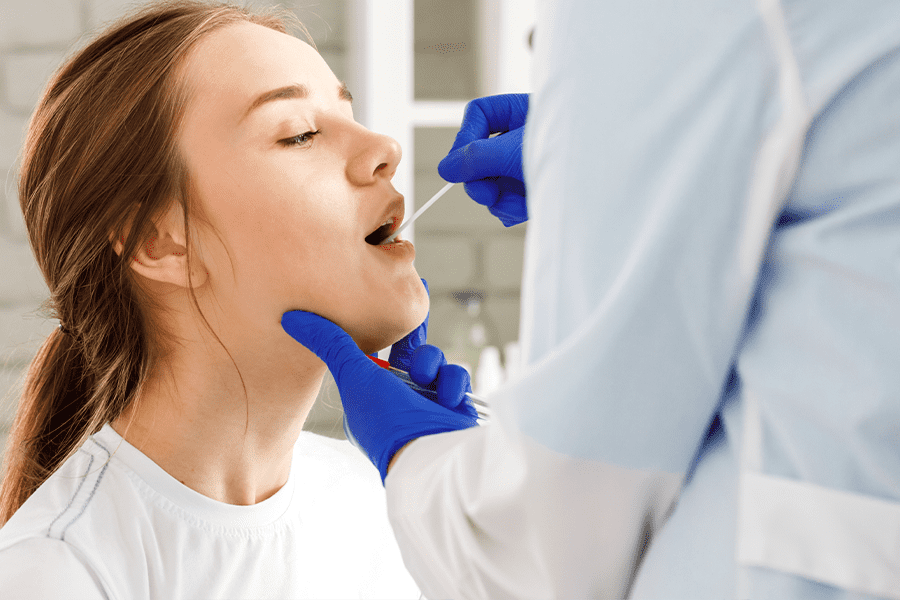 Why should I get tested for an STD?
Why should I get tested for an STD?- What STDs should my doctor test for?
- Where can I go to get tested?
- How does the doctor test me for an STD?
- What kinds of treatment are available for STDs?
Sexually transmitted diseases are fairly common. Given that they are often undiagnosed and untreated, many clinicians suspect that the incidences of STDs are in fact quite higher than reported.
Why Should I Get Tested for an STD?
If you’re a sexually active individual, you should get tested for STDs regularly to protect your health. The truth is that the early detection of an STD can help prevent serious complications, including infertility.
It can be challenging to break through any preconceptions about STDs and bring yourself to take the step of getting tested, but ultimately, this is the most responsible thing you can do. Some of the health complications women can develop due to an untreated STD include:
- Anal cancer
- Bladder problems
- Blindness
- Cervical cancer
- Dementia
- Ectopic or tubal pregnancy
- Heart damage
- Infertility
- Liver cancer
- Meningitis
- Pelvic inflammatory disease
- Pregnancy complications
Early diagnosis and treatment of an STD can also help stop you from inadvertently spreading some dangerous illnesses to other people. Getting tested for STDs helps you protect the health of any sexual partner. Additionally, being aware that an STD can get passed down to children that you conceive while infected can also help inform your family planning decisions.
What STDs Should My Doctor Test For?
 There is no single test for an STD, but instead a panel of tests that your doctor can conduct. Be honest with your doctor about your sexual activity and your comfort level discussing these topics. The Centers for Disease Control and Prevention (CDC) recommends the following tests:
There is no single test for an STD, but instead a panel of tests that your doctor can conduct. Be honest with your doctor about your sexual activity and your comfort level discussing these topics. The Centers for Disease Control and Prevention (CDC) recommends the following tests:
- HIV testing at least once for those aged 13 to 64
- Women younger than 25 should be tested for chlamydia and gonorrhea yearly
- Women who are pregnant should undergo testing for hepatitis B and C, HIV, and syphilis early in their pregnancies
- Anyone who has multiple sex partners or who engage in sexual behaviors that put them at risk should be tested for HIV at least once a year
If you’re entering into a new relationship, consider both of you getting tested to help protect each other. If you are in an existing relationship and think you may have been exposed, this could create a difficult conversation between you and your partner—but it is one you must absolutely have.
Not knowing if a partner has an STD is worse than understanding where you stand. That way you can protect the people you care about.
Where Can I Go to Get Tested for an STD?
Like any other viral, bacterial, or parasitic infection, sexually transmitted diseases (STDs) should be diagnosed and treated for your health and the health of your partners. At Advanced Obstetrics & Gynecology of Lake County, we regularly treat STDs and get our patients back on the road to wellness as part of our regular sexual health services.
There are several confidential testing sites that you can make use of. For example:
- Local city health clinics or other community facilities
- Urgent care centers for immediate testing, however some do not have on site labs
- Some pharmacies and the bigger retail stores that sell home testing kits for STDs, but you must have a sense of what illness you’ve been exposed to before buying one
- Online companies such as LetsGetChecked, where you can purchase an at-home test kit
- Planned Parenthood health centers
- Your college health center, if you’re a student
- A mobile health clinic in your area
It’s important to note that one big problem with online testing is that you still have to go to a doctor to receive treatment. They may decide to repeat the test as well to confirm the diagnosis. With this said, the cost of the online tests can range up to (or over) $200 depending on what you’re testing for. If you have insurance, most carriers cover some STD testing as does Medicare and Medicaid.
Also, depending on the state you live in, you may need a doctor’s prescription to even order the test online. We should also mention that only a licensed physician can perform a pap smear that checks women for the human papillomavirus (HPV).
With all of these choices, though, where should you go to get tested? We strongly encourage you to talk with a doctor you trust about your concerns and have a licensed medical professional conduct the testing. While DIY test kits are a great idea, your doctor will treat your conversation confidentially (it’s the law) and can provide you with answers to all of your questions as well as providing you with treatment.
How Does the Doctor Test Me for an STD?
 In the privacy of the treatment room, your doctor will conduct an STD test that may require a blood or urine sample or a genital, oral, or rectal swab. Here are the testing methods for STDs:
In the privacy of the treatment room, your doctor will conduct an STD test that may require a blood or urine sample or a genital, oral, or rectal swab. Here are the testing methods for STDs:
- Chlamydia, gonorrhea, and trichomoniasis—Urine test and/or a swab from your penis, rectum, throat, or vagina
- Hepatitis A, B, C, herpes, and syphilis—A blood test
- HIV—A blood test or an oral swab
- HPV—A pap smear
These tests are quick and painless. The amount of time to wait for the results depends on the test. Some rapid HIV tests take just 30 minutes. Other tests take one to several days to confirm your results.
What Kinds of Treatment Are Available for STDs?
Depending on the type of infection, you will be treated either with antibiotics or antiviral drugs. For example, if you have chlamydia, gonorrhea, syphilis, or trichomoniasis, you will be treated with a course of antibiotics. It’s important to abstain from sexual activity for a week after you’ve completed the treatment. If you have HIV or herpes, you will be treated with antiviral therapies that can keep these infections in check.
STD Treatment at Advanced Obstetrics & Gynecology of Lake County
STDs can be treated, and you don’t have to feel ashamed to get tested for one. In fact, it’s one of the best things you can do for your health and the health of those you love.
At Advanced Obstetrics & Gynecology of Lake County, we offer testing, treatment for STDs, and support for our patients. If you would like to schedule an appointment with one of our sexual health experts, contact us today.
